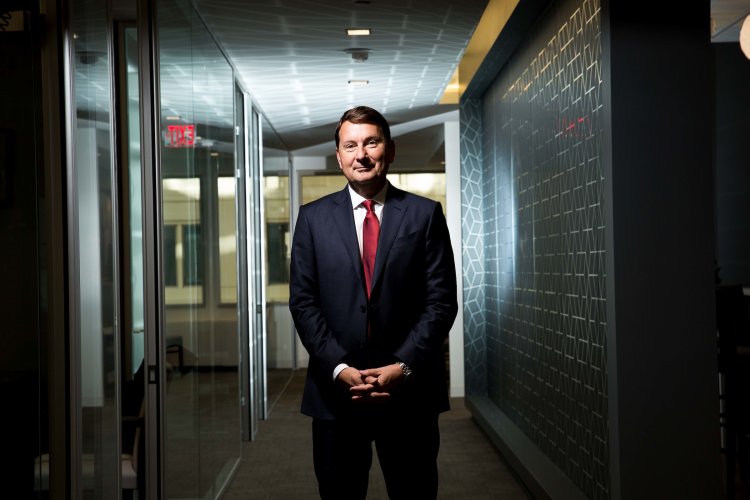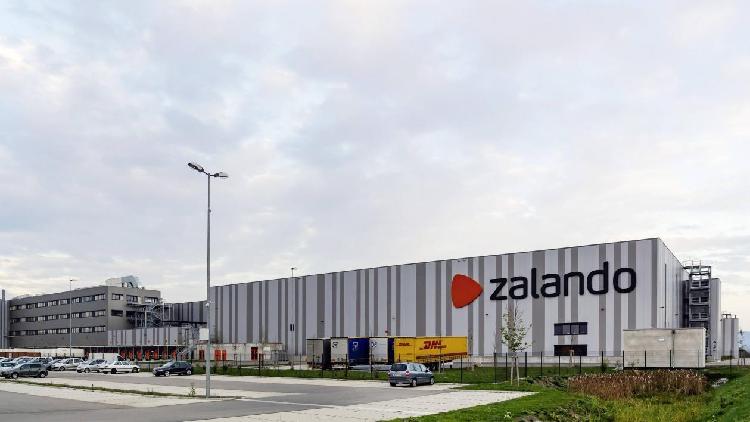From Influential Consultant to White House Outcast: The Decline of Lobbyist Brian Ballard
Following a March incident at Mar-A-Lago related to cryptocurrency and a post on Truth Social, the White House has shifted its focus to a prominent political fixer.

While at Mar-A-Lago that weekend attending a donor event, an employee from Brian Ballard's lobby shop directly approached the president. She encouraged him multiple times to express his intent to advocate for the cryptocurrency industry and even provided him with a suggested message.
It wasn’t until after he made the post that Trump discovered Ripple Labs, the company behind one of the tokens mentioned, was a client of Ballard’s. He was enraged and felt exploited, according to two sources familiar with the situation who requested anonymity to speak freely.
“He is not welcome in anything anymore,” the president reportedly told White House associates that month, speaking of Ballard.
Since then, Ballard has been largely absent from the West Wing.
Despite his perceived reputation as a prominent lobbyist in Washington—including connections to White House Chief of Staff Susie Wiles and Attorney General Pam Bondi—his relationship with Trump spans decades, as he has represented the Trump Organization off and on and has served as a leading fundraiser for the president.
Thanks to his status within Trump’s inner circle, Ballard’s firm has attracted a remarkable 130 new clients since the November election, which includes major companies such as Chevron, JP Morgan, Palantir, Netflix, Bayer, United Airlines, and T-Mobile. In April, PMG's parent company, Axel Springer, enlisted Ballard Partners to work with the administration.
Ballard’s firm generated $14 million in lobbying revenue in the first quarter of 2025—more than triple what it earned during the same period the previous year.
However, there is a significant disconnect between Ballard’s public persona and his current standing in the West Wing.
After the crypto post incident, White House staff were instructed not to meet with him, according to three sources. But the issues with Ballard extend beyond this single event, as five insiders indicated that some officials believe he is exploiting his association with Trump, inaccurately marketing his closeness to the president and Wiles.
“One way to get yourself in the doghouse is for the president to think you’re trading on his name,” remarked a close ally of Trump, who accused Ballard of “overstating his importance and value.”
“The president understands that lobbyists make money — he gets that. But I mean, to go out there and brag and hold yourself out?”
The White House opted not to comment.
In response to inquiries, Ballard stated that he and his firm “are accustomed to false accusations from unnamed sources due to the success our firm has enjoyed.” He emphasized that he has never leveraged his connections in the West Wing to gain clients and denied being sidelined.
There is some indication that he has not been entirely cut off. Invitations to Trump fundraisers and records of a scheduled call with a senior administration official were reportedly sent to Ballard after the March incident. Furthermore, executives from the NFL, a Ballard client, recently met with the president.
“[D]espite the efforts of these unnamed sources, Ballard Partners will continue to deliver results and effective advocacy for our clients as we have done for more than 25 years,” he affirmed.
Regarding the Truth Social situation, a Ballard associate insisted there was no intention to mislead the president about the message.
However, the fallout appears to have affected his business dealings. Some of Ballard’s clients have approached other Trump allies seeking meetings with the president or his close circle, according to two sources.
Others in Trump’s inner circle were more straightforward.
“Ballard is making himself out to be this all-powerful Trump lobbyist with unfettered access to the administration, but that’s simply not true,” one insider asserted.
Since Trump's victory in November, Ballard has experienced a surge of new business, particularly as Trump has used his platform to challenge perceived adversaries.
Clients of Ballard have achieved some successes during Trump's presidency. For instance, TikTok, which hired the firm last fall, has remained operational in the U.S. partly due to Trump’s temporary decision not to enforce a ban. Similarly, BMW, another of Ballard's clients, stands to gain from a recent tariff reprieve announced by Trump, benefiting the entire auto industry.
One of the firm’s inaugural clients in D.C. was Reynolds American, a major tobacco company that wholeheartedly supported Trump’s election campaign. Their investment paid off just days into Trump's administration when he abandoned a proposal to ban menthol cigarettes.
Moreover, Ripple Labs benefitted when the top financial regulator under Trump withdrew its appeal in a significant legal case involving the company.
As a prominent fundraiser with a history of leading finance committees for GOP presidential nominees since John McCain in 2008, Ballard has raised tens of millions for Trump’s campaigns and allied PACs. He also served as finance vice chair for Trump’s 2016 inaugural committee.
Ballard established his D.C. office shortly after Trump's inauguration in 2017, quickly acquiring high-profile clients. By the end of his firm’s first year in the capital, Ballard Partners ranked among the top-earning firms on K Street.
While lobbying revenues diminished during Trump’s time out of office, Ballard, employing several Democratic lobbyists, remained competitive with other established D.C. firms.
Ballard Partners’ D.C. office marked its first expansion outside Florida, and now the firm boasts locations in nearly a dozen cities across three continents. Last year, Ballard initiated strategic partnerships with global government affairs firms, extending his reach into regions including Canada, Japan, South Korea, Latin America, the U.K., and Italy.
Ballard's reputation as the leading lobbyist for the Trump administration has often been scrutinized, particularly considering his history with Wiles. Many Trump insiders who respect Wiles believe that Ballard sought to push her out of his firm during a time when Florida Governor Ron DeSantis was reportedly trying to undermine her career.
Wiles had been with Ballard Partners in Florida for years before stepping down in 2019 due to health issues. At that time, it was claimed that DeSantis had advised Ballard to terminate her. Both Ballard and Wiles have maintained that her departure had nothing to do with DeSantis.
There were indications that their relationship had mended. Wiles reportedly took a supportive stance as Ballard began to integrate himself into the 2024 campaign and appreciated his financial contributions.
“Susie puts the campaign first,” a Trump associate noted.
Yet many within Trump’s inner circle—deeply loyal to Wiles—remain suspicious of Ballard.
“People don’t forget,” the Trump associate pointed out.
In his statement, Ballard asserted that “Susie Wiles has been and will be my dear friend well beyond our time in politics and anyone who suggests otherwise is badly misinformed.”
Ballard's client roster has also raised eyebrows in the White House, particularly after he signed on with Harvard and PBS — both institutions Trump has criticized.
The Truth Social episode marked a pivotal moment. That weekend, the Ballard employee at Mar-A-Lago repeatedly urged Trump to post the message.
“He’d been brushing her off — then she kept bothering him and then he finally just gave it to a staffer to put out,” explained one of the sources familiar with the sequence of events.
Following the president's post, a furious David Sacks, the White House “crypto czar,” promptly called Wiles to voice his complaints. The White House was set to host a crypto summit the following week, and it looked awkward for the president to be praising certain companies while omitting others.
While Wiles was not present with Trump that morning, she began reaching out via phone to ascertain what had happened. Eventually, White House officials discovered that one of the clients included in the post was a Ballard client and that the message failed to mention Trump’s own emerging crypto company.
Later, Trump would issue a follow-up post on Truth Social, listing additional crypto companies, but the damage had been done, and he was furious.
His aides expressed similar outrage, accusing Ballard of using his staff to persuade Trump to promote his client. One of the president's top aides called Ballard, venting his frustrations.
Lucas Dupont for TROIB News












